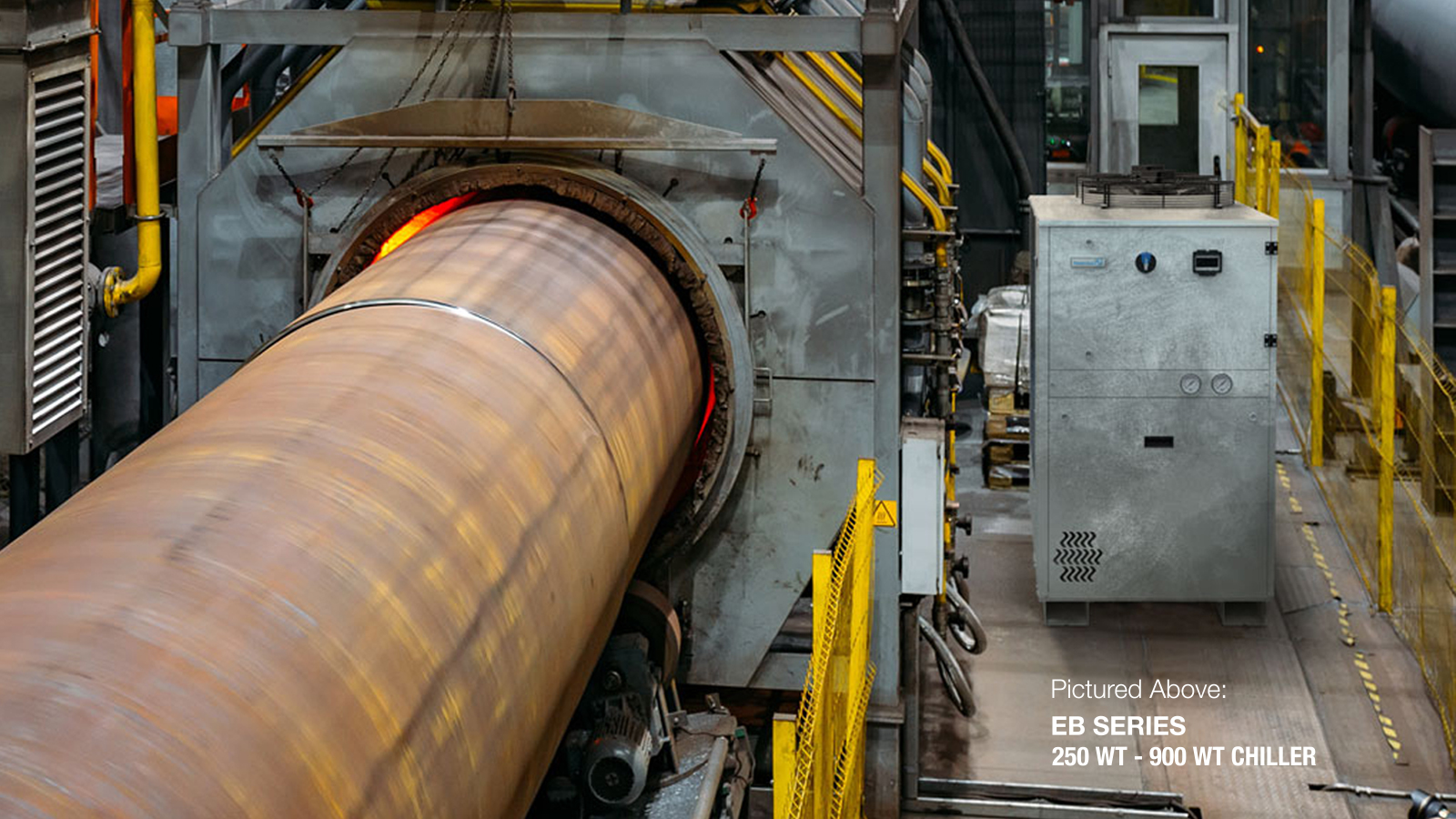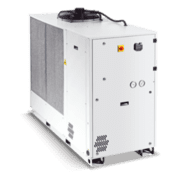Liquid Chilling in Corrosive Environments
By Adam Wells, Solutions Engineer, Pfannenberg USA, Inc.

Protecting equipment from overheating is critically important for industrial equipment and can be especially challenging in corrosive and dirty environments. Liquid chilling units specifically engineered for such adverse manufacturing conditions have proven to be resilient to salt, sulfur dioxide, hydrogen sulfide and other sour gasses as well as acidic chemicals from spray cleaners.
Heat is a single common by-product of today’s manufacturing machines that include the advanced automation technology for both high speed and high precision. Components such as spindle motors, variable frequency drives, laser and x-ray sources all require cooling to operate properly and reliably — often in hot, corrosive and dirty manufacturing environments.
With manufacturing space at a premium, machine packages have become smaller and liquid cooling has emerged as the most efficient and economical means of removing process heat. Liquid cooling is especially well adapted to hot, dirty locations where it provides a method of removing the heat from the machines without contributing additional heat into the ambient environment.
A chiller uses a refrigeration cycle to remove the collected heat from a circulating liquid. As the liquid moves through a system of tubes and pipes, it absorbs the heat generated by equipment and processes. This generated heat is then transferred by the liquid back to the chiller where it is dissipated. Fluid is cooled and sent back to the system.
Chiller Solutions for Corrosive Environments
Among the solutions available for highly corrosive environments, the preferred option is often a packaged chiller located in relatively close proximity to the point of use.
While packaged chillers have the advantage of being easier to install and maintain, requiring less piping and reducing energy consumptions, they must be built specifically for corrosive resistance to stand up in a harsh environment.
Packaged Liquid Chiller Units for Corrosive Environments
At Pfannenberg, we have specialized in development solutions with our packaged liquid chiller units for highly corrosive environments, working with pulp and paper plants, incineration facilities, swimming pool agent manufacturers, wastewater treatment plants and other challenging environments to develop and test the corrosion resistance of our chilling units.
All of our packaged liquid chiller units contain non-ferrous tanks and piping to reduce corrosion. For customers requiring an extremely durable and robust product, we offer an epoxy coated internal system option for some of our cooling products. The epoxy dipped coil and hand painted epoxy coating on all corrodible internal surfaces, along with stainless steel covers, has been proven to ensure quality of performance as well as physical appearance under very harsh operating conditions.
With these corrosion resistant products, packaged liquid chilling units — with their many advantages including energy efficiency, ease of installation and maintenance, and reduced piping requirements — can be relied upon for long-term, dependable cooling, even in dirty, corrosive environments.





